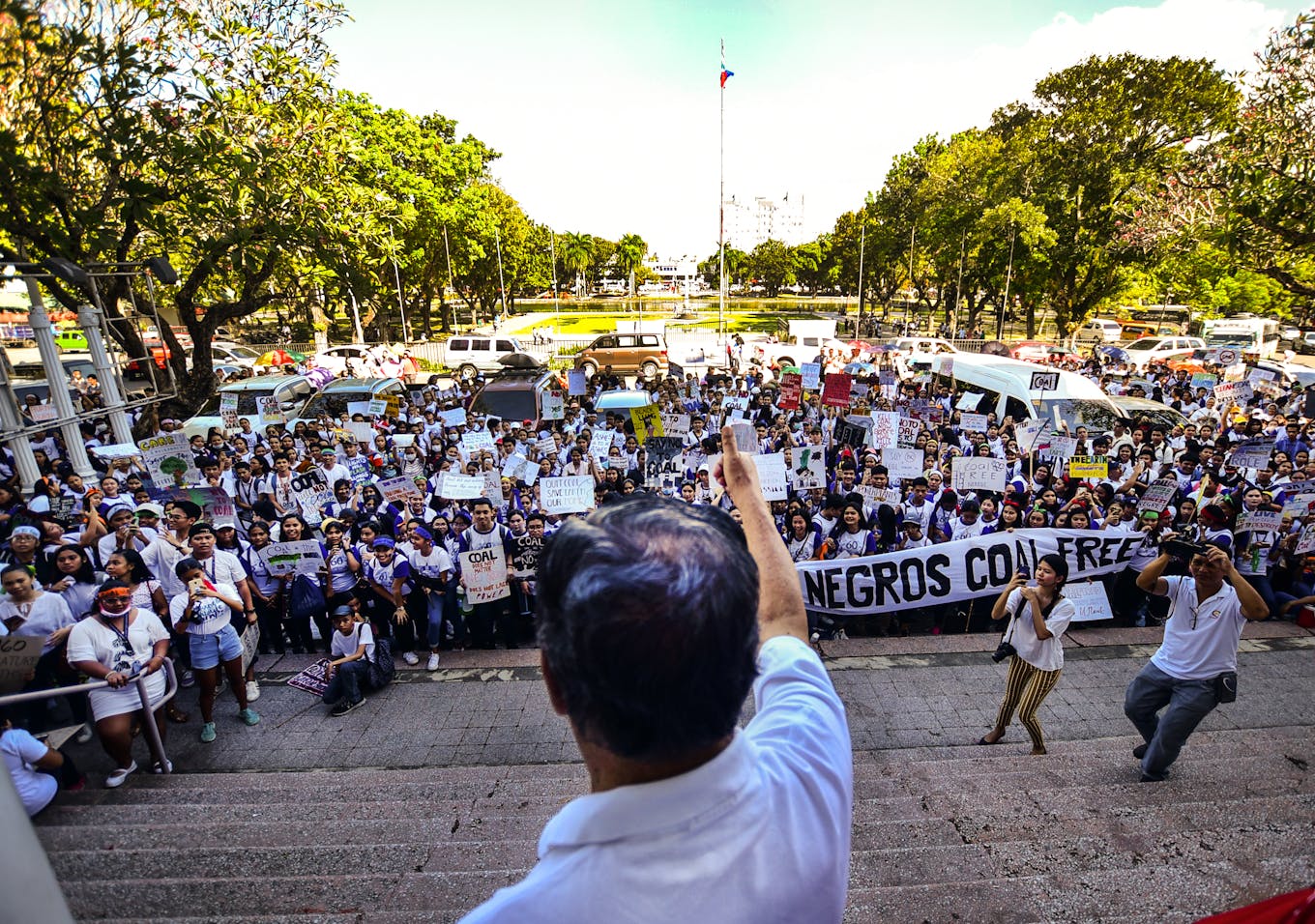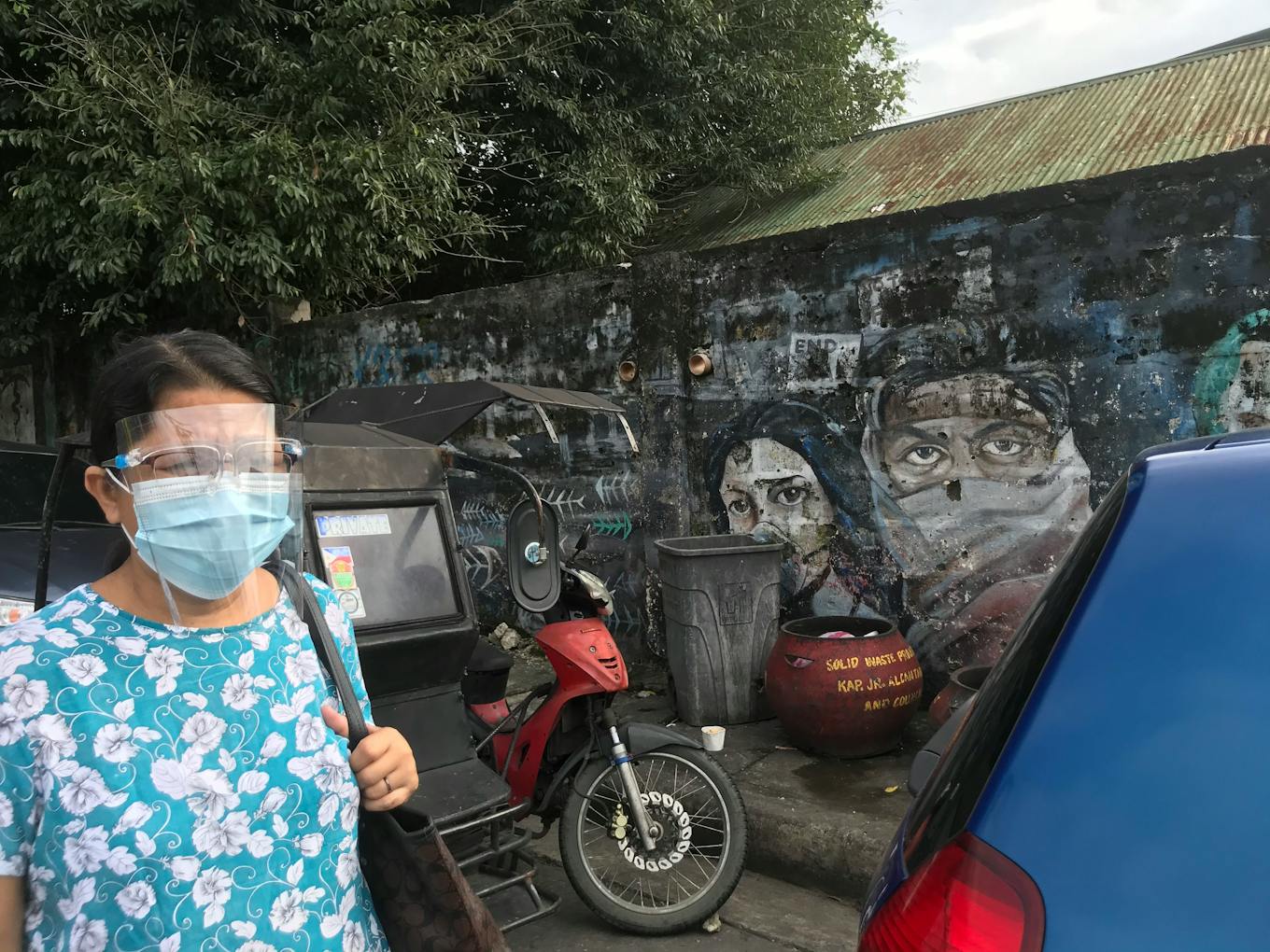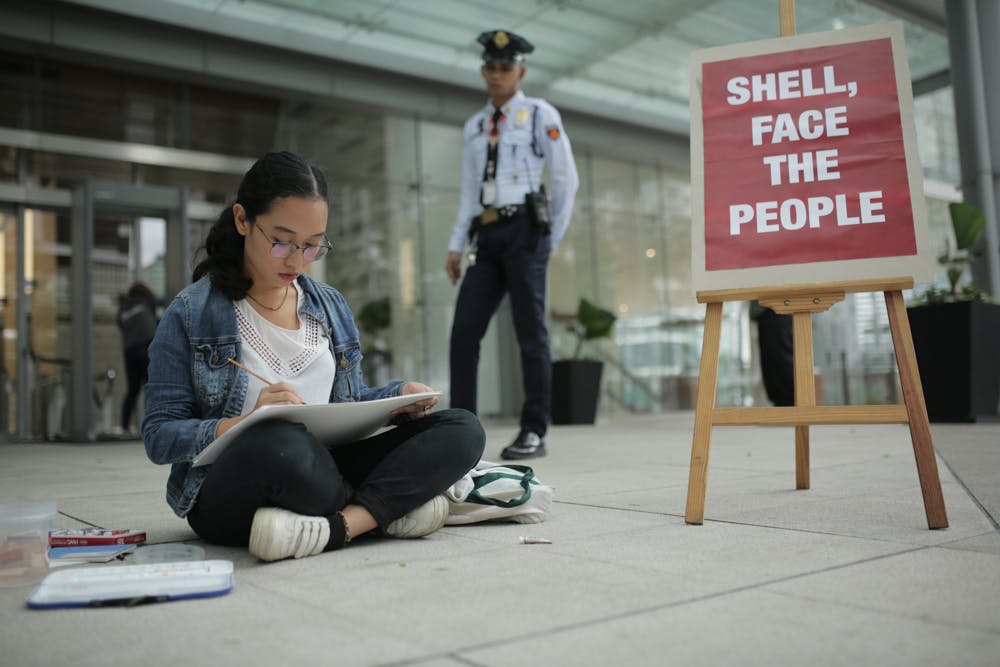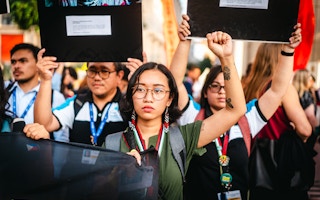On 6 March 2019, Negros Occidental governor Alfredo Marañon Junior walked out of the Bacolod city capitol building, with a signed Executive Order in his hand, and declared to a crowd of 2,000 people gathered outside the premises that from then on, Negros will only allow renewable energy sources, effectively stopping a coal-fired power plant from being built.
Among the pool of protesters celebrating the win was Krishna Ariola. The young activist had helped start Coal Free Negros, a movement which would later revive a decades-long intergenerational struggle against fossil fuels in her hometown – one that was previously fought by an older generation who similarly was determined to protest against planet-warming coal and gas operations.
Negros Occidental, a province in the Philippines located in Western Visayas, is now a renewable energy hub. There has not been a single coal-fired power plant on the island because of decades of resistance from the community, a legacy kept alive by youths like Ariola.
“Activism starts with asking questions – asking the right questions and asking why things are the way they are.” said the 26-year-old climate activist.

Negros Occidental governor Alfredo Marañon Jr gives a thumbs up to the group of Coal Free Negros protesters gathered in front of the provincial capitol building. Image: Rexor Amancio / The Climate Reality Project Philippines.
In recent years, Coal Free Negros has advocated for its cause through social media and sought to educate the general public by publishing accessible write-ups and well-designed graphics. Ariola would go on to form another youth coalition Youth for Climate Hope (Y4CH) with like-minded activists. In 2019, the group led an iconic strike which attracted strong attendance as the Catholic schools network then had allowed and encouraged its students to be part of the protest movement, and rally behind causes such as a coal phase-out and more support for renewable energy initiatives.
In 2022, Y4CH scored a victory when it got Philippine conglomerate San Miguel Corporation – also Southeast Asia’s largest liquefied natural gas (LNG) power plant developer – to shelve a plan to build a 300-megawatt (MW) gas-fired plant in Negros. Fishing communities near the proposed project site were rallied to join and staged silent protests.
Ariola tells Eco-Business that local activist organisations have mushroomed and the anti-fossil fuel movement in Negros and beyond now has a life of its own, which she is glad about.
Her attention has now turned to policy work. As an advocacy, networking and communications officer working for the non-governmental organisation Centre for Energy, Ecology, and Development (CEED), Ariola is lobbying for the decentralisation of Negros Occidental’s renewable energy system through a pilot initiative. She hopes that the provincial government will draft a renewable energy ordinance so that provisions from the national-level Renewable Energy Act 2008 can be adapted and localised.
In an interview with Eco-Business, the winner of Sustainability Leadership Youth A-List 2023, shares more about her journey as a climate activist in the Philippines, and what keeps her dreams alive.

A washed-out anti-coal mural in Bacolod City is obscured by municipal waste bins. At one point, it felt like the city had forgotten a decades-long battle that the older generation had fought against coal-fired power plants, said Ariola. Image: Krishna Ariola.
Coal Free Negros revived the intergenerational struggle against fossil fuels in Negros Occidental. How did the journey start?
The coal energy ban was our first milestone. Before that, while we were on the ground, I talked to many people, including those from local organisations and communities who told me they had been lying low since the Martial Law regime [in the 1970s]. Some groups were not on talking terms. But the activists were able to start talking to each other when they started helping us out. The fact that youths were leading this new movement became a unifying point. Previously, they were not connected. They had experience and knowledge, so we owe it to them. We could not have done what we did without their guidance.
I also recall seeing this iconic and large mural on a wall that called for an end to coal while walking in the downtown area of the city. It looked more than a decade old. When I met the elders of activist groups in Negros, I asked them many questions: Was there a coal-fired power plant in the city before? How did the mural come about?
Their answers helped me piece together a story that would become Coal Free Negros’ main narrative. At the heart of this story which dates back to 1997 is Dr Romana de los Reyes, the woman who convened Negrosanons or the people of Negros against a coal-fired power plant project then. As if it was magic, three days after I learnt her name, Dr de los Reyes showed up at one of our forums on coal advocacy, after seeing a photo I posted on Facebook. She brought along these thick brown envelopes and said to me: “These are the files and write-ups from 1997. I hope these can help you.”
It was like the movement had come full circle, and I felt that our struggles were interconnected. We were fighting for the same things.
We learnt from these documents that, from 1997 to 2001, coal-fired power plants that were to be built in Bago City, Silay City and Pulupundan across the Philippines were stopped. In Pulupundan, the coal-fired power plant had already been given an environmental compliance certificate by the Department of Environment and Natural Resources (DENR), but the campaigners persisted and did not stop. The local communities rejected the coal-fired power plant, stating in a resolution that it would harm the environment, the people and their children. The DENR had to revoke the permit.
What would you say to those who say climate activism is anti-development?
That is one thing we try to debunk. Whether we try to stop a coal-fired power plant, road construction in the middle of protected forests, or black sand mining in coastal areas, we have had people saying that we are being primitive, that we should just go back to our caves if we were not for development.
But I think activism is not anti-development. Many environmental and climate movements are looking to the wisdom of Indigenous peoples in their effort to build a better world. We are advocating for people-centred development informed by the wisdom of the land, and of our ancestors and their experience. We are not against technological development if it benefits everyone. But we are trying to say that some solutions can end up becoming part of systems that will continue to oppress us.
For example, the pursuit of solar energy can displace communities and projects can be mining-intensive. A just energy transition is not just a technical and technological shift. It’s also a paradigm shift where entire systems have to be dismantled, questioned, renegotiated and rebuilt. And I think that goes further than the limited development that capitalists advocate for.
Honestly, I think the answer is political. We do not have to beg big businesses and corporates to listen [to us]. In the Philippines, people who are empowered are such as elected politicians and leaders who also own big businesses. They have to realise that storms will not differentiate between the rich and the poor. Extreme weather events can also affect the ruling elite and upper classes, and it might be too late if they don’t do anything now.

Krishna Ariola paints in front of Shell’s Headquarters in the Philippines, in a silent protest against the fossil fuel industry. Image: Geric Cruz / Greenpeace.
I have also never shied away from identifying as an activist. I grew up among a community of people who have been at the forefront of activism for the longest time. Negros Occidental is the sugar capital of the Philippines. There are a lot of sugarcane fields on our island, and the people of Negros were the victims of a manufactured famine during martial law which lasted for more than 20 years. We have been fighting for sustainable agriculture, organic farming, and a lot of other things, and we can see the value of activism. Even when faced with difficulties, such as red-tagging, we call ourselves activists and we are very proud of it. The struggles of our ancestors, our mothers and our fathers, allowed us to do the work that we’re doing right now without fear of persecution.
How did this community that you grew up with shape you as a person emotionally and spiritually?
My mom worked in an NGO, fighting for farmer’s rights and sustainable agriculture. My dad was a musician. They were both cultural workers during the martial law and they tried not to tell us about it. They tried to steer us away from the activism world because they knew how difficult it is. But they exposed me at a very early age to interactions with the community around me. Growing up among farmers, visiting coastal areas and the communities who lived there almost every weekend, opened my heart and mind and helped me understand many things. I am grateful for that. They also encouraged me to read and write a lot.
Growing up in such a family made me question many things that were treated as norms by our society. My parents didn’t hold my hand and lead me into the world of activism, but I found myself here. When I got involved in the environmental movement, I was able to see the ecosystem of different NGOs, civil society and people’s organisations, working on different issues that intersected with climate and the environment. That made me realise that there is a community to lean into. It was not the burden of just one person.
What would you say are your key achievements beyond making these connections, including at the UN COP conferences, and being present in the movement?
I think that’s a difficult question. When you’re at climate conferences, you feel very disillusioned. International coordination is difficult. For the past few years, I’ve been trying to stop the expansion of gas in the Philippines at the national level. I’ve seen how difficult it is to coordinate with import-export industries in the United States and then the financiers in Japan and Europe.
The Philippines is one of the most vulnerable countries to climate change. And while the world is talking about trying to stop the irreversible effects of climate change, we’re already drowning in it.
But it is still a fresh experience for us to be part of an international coalition and to hear things that we want our leaders to say and to hear that from each other. We give support and we also find a space to grieve. One can easily get distracted by the semantics of policies, pledges and decision texts, but if you find time to talk to different people, you are also reminded of the reasons for the struggle. Attending these global events helped me build a wider perspective of my fight.
I started out stopping a coal-fired power plant. But now it’s about dismantling the oppressive systems that had allowed that to happen.
The interview has been edited for brevity and clarity.
Correction note (1 March 2024): A previous version of this story stated that the 2019 strike led by Y4CH received the backing of the Department of Education. This is incorrect. The story has also been edited to more accurately reflect Ariola’s views.
Krishna Ariola was one of 10 sustainability leaders selected for the Sustainability Leadership Youth A-List 2023. Read our stories on other A-List winners here.





















